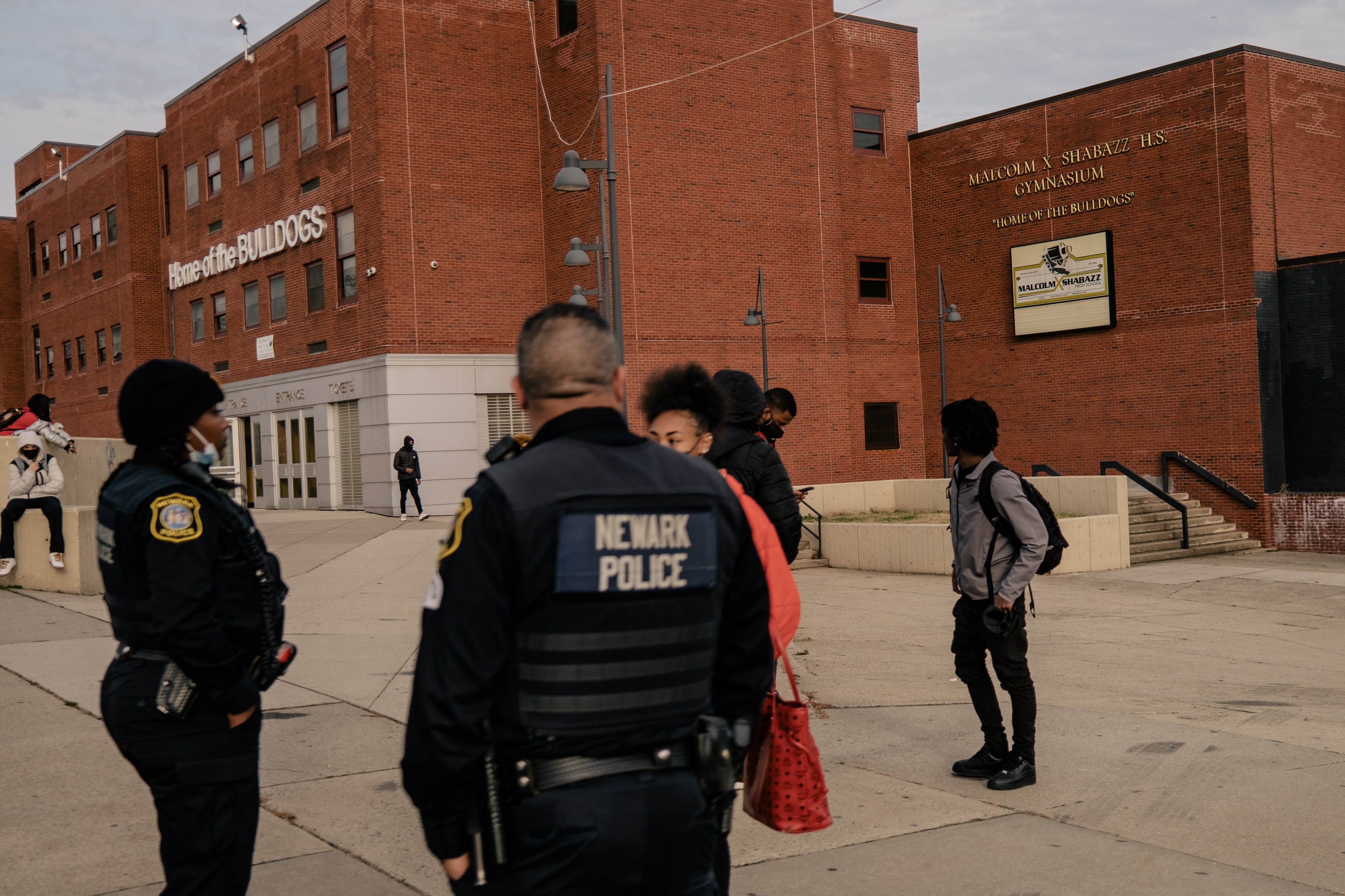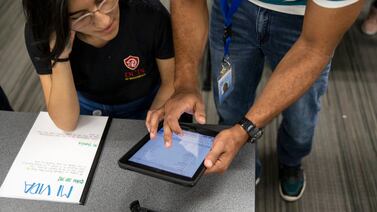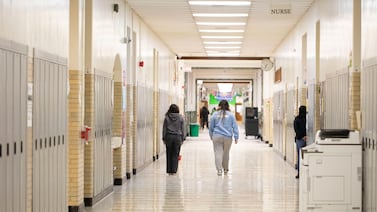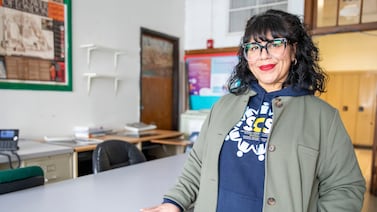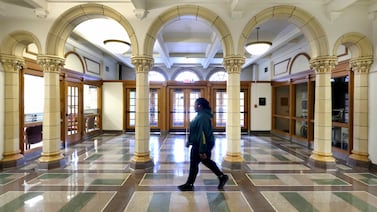Sign up for Chalkbeat Newark’s free newsletter to keep up with the city’s public school system.
The installation of a new artificially intelligent surveillance system meant to make Newark schools safer has been delayed and won’t be completed until the end of the school year, the district said.
Newark Public Schools had planned to install over 7,000 cameras equipped with AI capabilities — one for every five students — by Aug. 31, before the start of the school year. The district did not provide details about the reasons for the delay but sources close to the project said it was due to challenges in connecting required cabling and wiring through Newark’s aging school buildings.
Newark’s multimillion dollar AI camera project is largely funded by federal COVID relief money through the American Rescue Plan — funding that was set to expire on Sept. 30. The Newark school district received a federal extension to use the funds past the September deadline following project delays, according to Paul Brubaker, the district’s communications director, in an email to Chalkbeat.
The work to install cameras and connect the required cabling districtwide is projected to cost $17.5 million, according to Brubaker. The installation work will take place outside school hours, Brubaker added.
Millennium Communications Group Inc., based in East Hanover, N.J., is responsible for completing the cabling work required to connect and activate cameras to district servers. Millennium declined to comment “because of the sensitive nature of our work,” according to an email to Chalkbeat Newark. The company said it is “not authorized to comment on active projects” and referred all questions to the district.
The work to install over 7,000 cameras in Newark’s school buildings, some of the oldest in the state dating back to the early 1900s, is a massive infrastructure project for the district, where many schools need asbestos removal among other structural upgrades.
In May, the Newark school board first approved a contract up to $12 million for Turn-Key Technologies Inc., based in Sayreville, N.J., to install the AI surveillance system across all schools. The board also approved a separate contract up to $10 million for Millennium to complete the cabling work required to connect and activate cameras to district servers. In 2021, the district allocated $2.4 million in federal COVID money for security cameras, which Superintendent Roger León has said are meant to make schools safer.
But security experts warn that systems with AI capabilities could result in an invasion of privacy or could potentially misidentify items or students if proper safeguards or policies are not in place.
Millennium is a fiber optics and technology company that has encouraged school districts to use American Rescue Plan dollars on security, surveillance, and network infrastructure. Millennium, which beat out two other vendors for the bid, is also an authorized reseller on the New Jersey School Board Association’s Technology & Cybersecurity contract through its partnership with Carahsoft, a government IT solutions company, and the school board association. The contract allows Millennium to supply school districts and member charter schools throughout New Jersey with cybersecurity solutions.
The district’s new surveillance system is an upgrade from its previous cameras. The new setup will use Avigilon cameras, a type of system compatible with Motorola radios used by district school security guards. The integration also expands Newark’s security capabilities by designating personnel to access camera footage, allowing the district to search through footage, hone in on specific incidents, and detect unusual activities throughout the school day.
That system will work with the district’s HALO sensors that can detect vape, gun sounds, and abnormal noise in areas where there are no cameras such as bathrooms, according to Newark’s request for proposals.
Wilson said in May that city police officials would not have access to the system, which includes cameras inside and outside of school buildings and other district locations.
Jessie Gómez is a reporter for Chalkbeat Newark, covering public education in the city. Contact Jessie at jgomez@chalkbeat.org.

